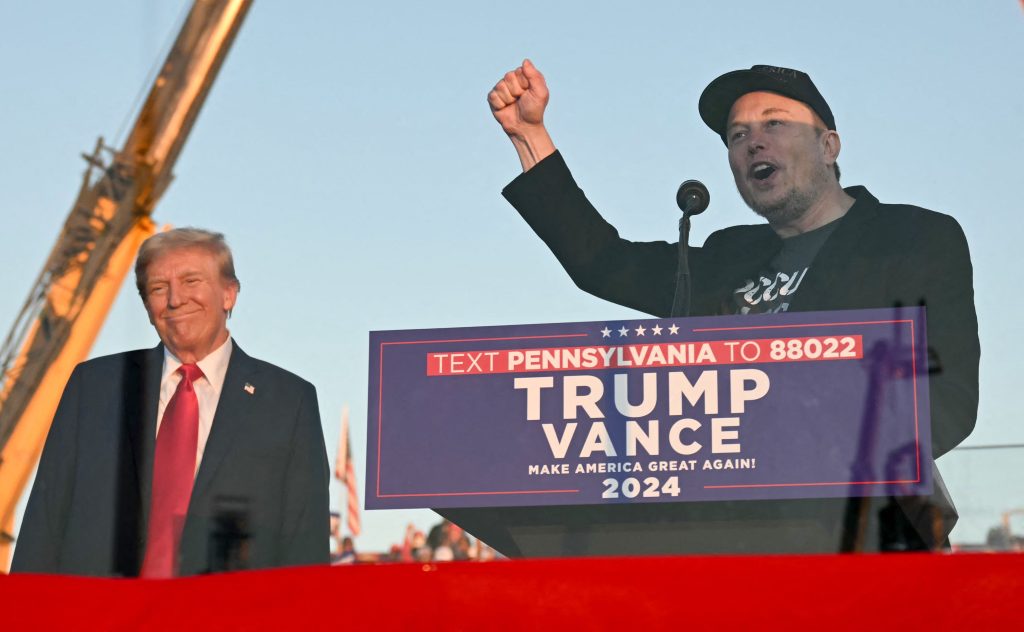Supreme Court Rejects Elon Musk’s Appeal Regarding Trump’s Twitter Records
3 min read

The Supreme Court has opted not to hear an appeal from Elon Musk’s X Corp., which argued that special counsel Jack Smith violated the First Amendment by obtaining a search warrant for former President Donald Trump’s Twitter messages and subsequently prohibiting the company from disclosing this information. The decision was made without any commentary or noted dissents from the justices.
This legal battle arises from Smith’s investigation into Trump’s attempts to overturn the results of the 2020 election. Trump has faced indictments, and his case is currently ongoing in the U.S. District Court in Washington, D.C. As part of this investigation, Smith sought access to Trump’s communications on Twitter, now rebranded as X. The social media platform initially resisted compliance with the warrant, leading to a $350,000 fine imposed on the company. However, X did not challenge the validity of the search warrant itself; instead, the focus was on the accompanying gag order that prevented disclosure of the warrant’s existence.
In its appeal to the Supreme Court, X described the nondisclosure order as an “unprecedented end-run around executive privilege.” The company expressed concern over the broader implications of such a ruling, particularly regarding the potential for the government to collect information that might be protected under other privileges, such as those between a doctor and a patient. X argued that the precedent set by this order could have far-reaching consequences for the protection of sensitive communications.
The government, on the other hand, dismissed these concerns, arguing that Twitter could not assert any privilege over the records in question. “The Fourth Amendment permits the government to obtain a warrant to search property belonging to an innocent third party as long as the warrant is supported by probable cause that ‘evidence of a crime will be found,’” the special counsel’s office stated. This highlights the balance that courts often seek between the rights of individuals and the needs of law enforcement.
Musk, who has publicly supported Trump’s bid for reelection, has found himself at the center of this contentious legal issue. Both a trial court and a three-judge appeals panel in Washington, D.C., sided with the special counsel’s office, agreeing that disclosing the warrant could jeopardize the integrity of the grand jury investigation. This investigation ultimately led to the collection of several dozen direct messages sent by Trump, along with other data associated with his @realDonaldTrump account.
The Supreme Court’s decision to decline the appeal effectively maintains the lower courts’ ruling, allowing the special counsel to proceed with his investigation without the additional complication of public disclosure of the warrant. For X Corp., this outcome represents a setback, as the company sought to challenge what it perceived as government overreach and an infringement on its rights.
The case raises significant questions about the intersection of social media, privacy, and the legal system, particularly as it relates to high-profile political figures. The ability of the government to access private communications stored on platforms like Twitter has implications for privacy rights and the protections afforded to users under the First Amendment and other legal doctrines.
As the legal proceedings continue, the implications of this case may reverberate beyond the immediate parties involved. Observers are closely monitoring how the government’s approach to obtaining information from social media companies may set a precedent for future investigations and the extent to which user privacy can be safeguarded in an era of increasing digital communication.
In summary, the Supreme Court’s decision not to engage with Musk’s appeal marks a pivotal moment in the ongoing investigation into Trump’s actions surrounding the 2020 election. The case serves as a reminder of the complexities involved when government inquiries intersect with social media platforms and the rights of individuals. As developments unfold, the legal community and the public will continue to grapple with the implications of this significant legal precedent.